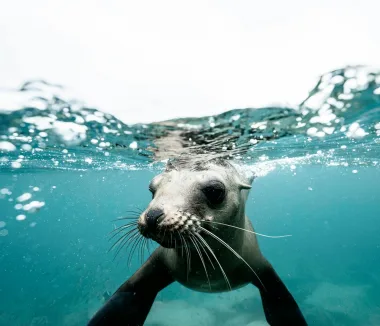Last Updated on April 26, 2024 by Ecologica Life
COP27 has stirred up a lot of controversy and has been trending on twitter as well as other social media platforms. Is COP27 a place where true action be conceived? Or is it just another greenwashing event?
What is COP27?
Every year, the United Nations (UN) holds climate conferences to encourage governments to decide on actions to keep global temperature increases to a minimum.
They are known as COPs, or “Conference of the Parties,” for short. The parties are the participating nations that signed the first UN climate agreement in 1992.
The 27th annual UN climate conference is known as COP27. It is taking place in Egypt in Sharm el-Sheikh from the 6th of November until the 18th. Over 200 countries have been invited. It is unclear however whether China will attend. Vladimir Putin will not be attending but delegates for Russia will.
Why is COP27 important?
The science is clear, global warming is undoubtedly being caused by human-produced emissions. Mostly from burning fossil fuels like oil, gas and coal.
Global temperatures have risen by 1.1ºC according to UN climate scientists and are on track to reach 1.5ºC as soon as 2033 and 2ºC as soon as 2060. The IPCC (Intergovernmental Panel on Climate Change) predicts that if temperatures increase by 1.7-1.8ºC then half the world’s population could be exposed to life-threatening heat and humidity.
To avoid this, 194 nations committed to “pursue efforts” to keep global temperature increases to 1.5ºC by signing the Paris Agreement in 2015.
What do world leaders at the current COP27 hope to achieve?
Countries were asked to submit comprehensive and ambitious national climate strategies prior to the meeting. To date, only 25 have done so.
COP27 will focus on three key topics:
- Reducing emissions
- Aiding nations in their efforts to combat and prepare for climate change.
- Securing technical support and funding for the above-mentioned for developing countries.
The summit will also follow up on certain issues left unresolved or unaddressed at COP26:
- Funding to assist nations in recovering from the effects of climate change rather than just preparing for them.
- Establishment of a worldwide carbon market to price the effects of emissions into goods and services globally (Carbon pricing)
- Strengthen the pledges to cut back on coal use.
COP27 controversy, is it hypocritical? A platform for greenwashing?
COP27 has stirred up a lot of controversy. Many world leaders and organisations have been criticised for using the event for “greenwashing”, a term used to describe politicians or organisations who deceive the public into thinking they are environmentally friendly when they are not.
The world leaders have flown to the summit in private jets, which can be 5 to 14 times more polluting per passenger than commercial flights.
Ironically, Cocacola sponsors COP27 which in October was named the world’s biggest plastic polluter in 2022.
Despite this controversy and apparent hypocrisy. It is fundamental that world leaders meet to discuss the global climate crisis looming over our heads. When the hole in the Ozone was discovered, the Montreal Protocol was signed by world leaders and this is considered one of the most successful global colaborative agreements ever signed because as of 2022 the hole in the ozone is continuing to shrink.
This means that a global, coordinated effort can make a difference, and it starts at summits like COP27. However, the public need to hold world leaders accountable for their promises. In the end, pledges won’t fix the climate change problem, action will. What needs to be discussed is how these pledges translate into action, using a clear roadmap to show how we can achieve to prevent the increase of global temperatures below 1.5ºC. So please, make sure you are holding your leaders responsible for the pledges they make, and make them to outline in detail how they will uphold them.
What do you think of thinks article? Leave us a suggestion







